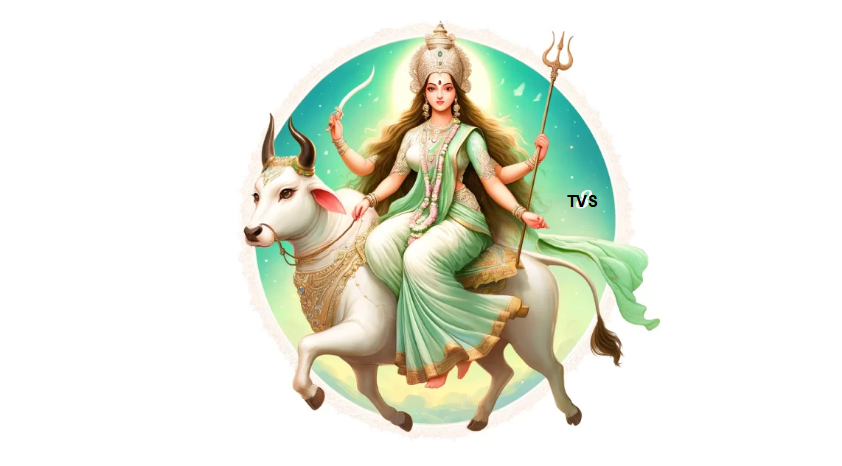
Navratri Day 8, also known as Ashtami, is dedicated to Goddess Mahagauri, the eighth form of Goddess Durga. Mahagauri is known for her serene beauty and radiance, symbolizing purity, peace, and wisdom. Her name “Maha Gauri” means the extremely white or fair one, as she is often depicted in white attire, riding a white bull, and holding a trident and a drum.
Significance of Day 8 (Ashtami):
– Color of the Day: Pink is often worn, representing hope, warmth, and compassion.
– Form of Worship: Devotees pray to Goddess Mahagauri to purify their hearts and minds, seeking spiritual wisdom and relief from worldly suffering.
– Rituals:
– Special pujas and fasting are observed on this day, particularly by women seeking blessings for a happy married life and the removal of all sins.
– Kanya Puja (Kumari Puja) is performed, where young girls (symbolizing the goddess) are invited to homes and honored with food, gifts, and blessings. This ritual celebrates the feminine power and divinity of the goddess in her purest form.
– Offerings to Goddess Mahagauri often include coconuts, fruits, and sweets, especially those made from milk.
– Mantra: Chanting the following mantra is auspicious on this day:
–
Shwete Vrishe Samarudha Shwetambaradhara Shuchih |
Mahagauri Shubham Dadyanmahadeva Pramodada ||
By worshipping Mahagauri on Ashtami, devotees seek forgiveness for their past mistakes, spiritual growth, and the fulfillment of their desires. It is also a day of introspection and preparation for the culmination of Navratri on the next day, Maha Navami.





